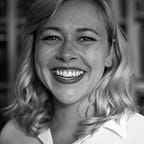On Book Editing and Taking Time Off
A cautionary tale
It took five days and a little over 32,000 words to write my first book. I’m not saying that to brag or to show off. I’m doing it because I want to take you behind the scenes of my life during that window of time and explain the events that followed.
Note: To give this claim credibility, here is a screenshot of my book’s writing history on Scrivener:
Also Note: This screenshot doesn’t take into account the amount of time it took to position and outline the book.
The week I spent writing Create consisted of 19-hour workdays, severe sleep deprivation, a complete lack of self-care, and total isolation. During that time, my body expressed its contempt for the hell I was putting it through in any way that it could. This meant that I put on a few pounds, broke out into a random case of hives, and experienced some mild depression. There may have even been a moment or two of, what the hell am I doing with my life?? sprinkled in there. Clearly, these stress responses were trying to tell me something.
To those of you reading this, I would not recommend taking the same approach, nor will I be putting myself through that kind of lengthy writer’s marathon again. (At least not anytime soon.)
One might think that, once I finished my book, my mind would be put to ease, and I would go out and celebrate. But I didn’t. Instead, I had built up so much energy and excitement from finishing my book that I was eager to jump right into editing. Big mistake.
I don’t know if it was a desperate need to share this collection of thoughts and experiences with my future readers or, if it was a fear that, by taking a break, I wouldn’t return to finish what I started. Who knows? Maybe I’m just a workaholic. But what followed was nothing short of pure exhaustion and burnout — in addition to a heavy bout of the flu — which is why I want to emphasize the importance of taking time off between writing and editing your book.
Coincidentally, about three days after I wrote the first draft, I had scheduled a flight over to the U.S. to visit my family. (I was living in Iceland at the time.) This was the perfect opportunity to set my manuscript aside and enjoy being home. Instead, I decided to push myself just a little further and use the five-hour plane ride to start chipping away at edits. I’ll take a break once we land, I told myself.
Mid-flight, however, my brain decided to shut down and force me into recovery mode…for the next ten days. One might imagine my irritation at the fact that I couldn’t get more work done. But looking back, I see just how vital and necessary that time away was to gain a fresh perspective on my book.
What my brain was trying to tell my stubborn ego was that it needed some time to process what I had just done. You know, work out some of the kinks that couldn’t be solved during prior phases. Needless to say, as I worked my way back into editing, two weeks later, I found myself catching dozens of errors that I had missed previously.
By jumping straight into edits, post-writing, my mind was so exhausted that it was willing to skip over awkward phrasings and other areas that felt “off.” But after having time to clear my head, I was able to quickly and efficiently come up with corrections and changes for the problem sections in each chapter.
The only thing my earlier edits had achieved was creating more work for me. And they certainly weren’t optimized like they would’ve been if I had just walked away as soon as I’d finished writing.
So, if you learn anything from this tale of poor judgment, it should be that taking a one or two-week vacation from your manuscript makes a huge difference in your ability to edit.
That said, even though it’s important to take a break, it is just as important to set a deadline for when you will return to your manuscript. Otherwise, you risk procrastinating for months and even abandoning your endeavor altogether. (This happens more often than you think.) It’s a delicate balance that every aspiring author must face at some point. But if you go into it with an awareness of what could happen, you will be better prepared to overcome this deadly trap and see your book through to the end.
Takeaway: Once you finish writing your book, leave your manuscript alone for a week or two to clear your head. And whatever you do, don’t obsess over it. Put it out of sight and out of mind during your time off. More importantly, go celebrate the fact that you just wrote a book! Pour yourself a glass of champagne and relax — you deserve it.
The Writing Cooperative is sponsored by
Grammarly makes sure everything you type is easy to read, effective, and mistake-free. Take your writing to a new level. Try it for free!
